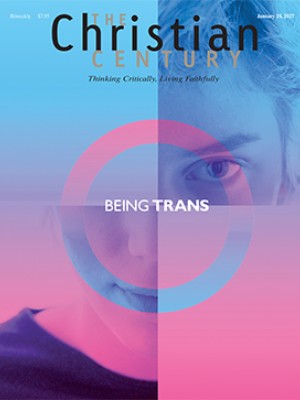February 12, Sixth Sunday after Epiphany
Deuteronomy 30:15–20; 1 Corinthians 3:1–9; Matthew 5:21–37
The notion of an “if/then” relationship between law and gospel persists in the minds of many a preacher. Today’s texts make a delightful train wreck of that proposal: the Deuteronomy passage contains only two “ifs,” whereas the Matthew passage manages to include six. It’s a Sunday to consider seeking the gospel in the heart of the written law as part of an effort to avoid the law in the heart of the written gospel.
Some of us, however, love living in the tension of viewing the whole of the word as a matter of “both/and”: it’s all good news, whether it’s labeled law or gospel. Or, more precisely: over the course of the history of God’s people, the particularities of human “if/then” decision points are swallowed up in the “because/therefore” arc of God’s will, which leans toward the salvation of us children whom—let’s be honest—only God could love.
Read our latest issue or browse back issues.
In the Deuteronomy text, the human specifics are pretty clear. On behalf of God, Moses lays out the choices: “life and prosperity” versus “death and adversity.” These are pretty straightforward outcomes. The means to achieving them are equally straightforward. “If you obey” God’s commandments and ways, then you shall live. “If your heart turns away,” then you shall perish. It is as cut and dried as a teacher setting out the rules of the classroom on the first day of school.
Yet it is also clear that these are not the rules of a classroom teacher, not the threats of a cosmic cop or the warnings of a dispassionate judge. These are the admonitions of a loving parent—the “if you poke the cat, then you’ll get scratched” kind of warning that has nothing to do with justice or judgment and everything to do with compassion and care. The whole point of this passage is revealed in its final verse: God is laying out if/then warnings in the hope of achieving a because/therefore end. All of these commands are laid out “so that you may live in the land that the Lord swore to give to your ancestors.” In other words, “because I have promised you this land, therefore I am giving you these rules for living in it.”
The Israelites haven’t just wandered to the doorstep of potential plunder. They have arrived at the destination God has prepared for them, and the divine will is that they should receive it and prosper in it. Walking in God’s ways will ensure that.
The Gospel text is another matter. Last week’s text was salted with grace; this week’s is peppered with threat. The particularities of human choice lead to a variety of unpleasant outcomes—if one acts wrongly, then one is liable to judgment, to the council, to the hell of fire; will be imprisoned until the last penny is paid; will have one’s whole body thrown into hell. One gets the impression Jesus is trying to get our attention.
Read the entire passage, however, and the threats of human particularity can be seen in the promise of a larger divine whole. Since way back in verse 11, when the Beatitudes shifted from a universal “blessed are they” to a focused “blessed are you,” Jesus has been addressing a community—the community of those who would follow. Next week the focus shifts beyond the community, beyond the neighbor all the way to the enemy. For now, though, Jesus is speaking to life in the community, to one’s conduct toward brothers and sisters.
It is as though these sentences are all clarifications of a larger declaration of Jesus—something along the lines of “because I have called you into life-giving community, therefore I give you these rules for sustaining that community’s life.” In other words, while specific disobedience threatens (very!) negative consequences, the outcome of a holistic obedience is a community knit together by intentional, compassionate behavior toward one another.
In this community, it is not enough only to avoid homicide. There is no room even for anger, insult, or name-calling—no room for behaviors that chip away at relationship and community. In this body, one approaches the altar only when one’s broken relationships are reconciled. In this circle, one not only resists the outright adultery that fractures others’ unions; one refuses even to objectify another with a lustful glance. Community happens between people, not mere objects.
Here, cutting off a member of one’s own body is preferable to the sin that may cut off a member of the community. Divorcing a spouse—or being willing to marry one who has been divorced—acknowledges an openness to fractured relationships that is at odds with this community’s ethic. Even making a vow introduces an unhelpful interference to connectedness—let your yes be yes and your no be no, solely for the sake of the connection you have, and not because you’re considering a vow external to that relationship.
The true challenge of this demanding ethic is not in avoiding the fearsome consequences it threatens or in executing the drastic actions it requires. It is in living a life so fully committed to the community, its members, and the One who calls it into being.
It is precisely because the Corinthians have fallen so far short of this ethic that Paul expresses such frustration with them. For all he has shown them of the good news of their salvation, they cannot get past the temptation to express allegiance not to Christ nor even to their own congregation, but to factions within it. Created and crafted for divine purposes, they are “behaving according to human inclinations”—an experience too familiar to us all.
Those human inclinations will continue until the eschaton. Nonetheless, in faith we glimpse just enough of God’s promise to strive for more Christlike behavior, more united human community, more abundant life. Let’s choose life.






